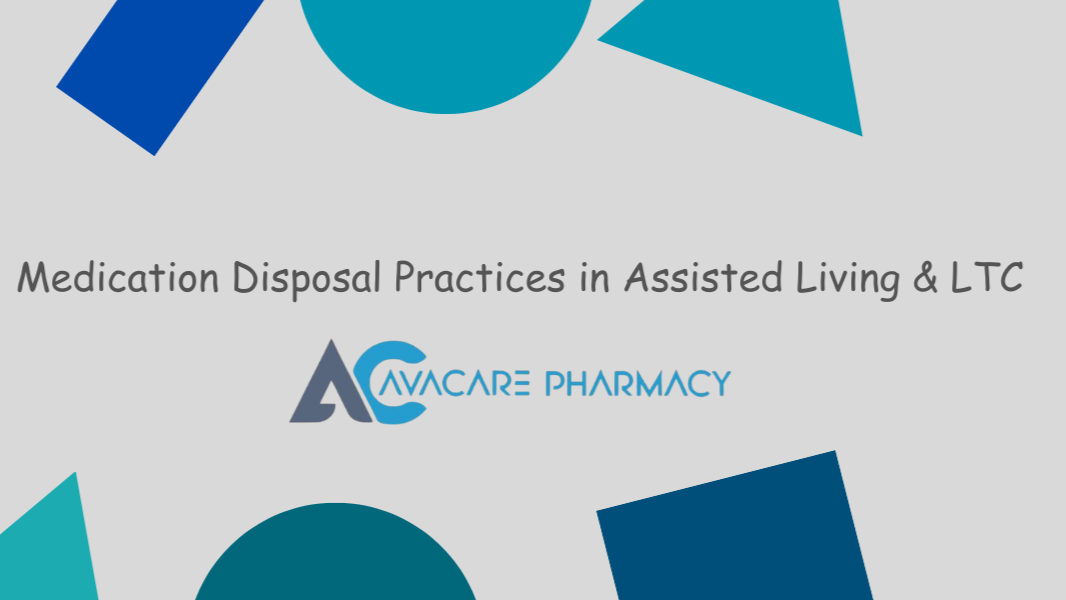News/Blog
Understanding 2026 Medicare Part D Changes for Long-Term Care (LTC) Patients
Medicare Part D has undergone significant changes in 2026, affecting reimbursement structures and financial responsibilities for Long-Term Care (LTC) patients. While the 2026 Medicare Part D changes aim to improve affordability and shift some financial responsibility to drug manufacturers, they also introduce a more complex reimbursement model for pharmacies. Could these complexities potentially impact patients' access to medications in long-term care settings?
Key Changes Affecting LTC Patients:
1. $2,000 Annual Out-of-Pocket Cap
Starting January 1, 2025, Medicare Part D introduces a $2,000 annual cap on out-of-pocket prescription drug costs. This cap applies to all enrollees, including those in LTC settings, effectively eliminating the previous “donut hole” phase. Once the cap is reached, beneficiaries pay no further cost-sharing for covered drugs for the remainder of the year.
2. Elimination of the Coverage Gap
The traditional coverage gap, where beneficiaries were responsible for a larger share of drug costs, has been eliminated. In 2025, the standard Part D coverage structure comprises:
Deductible Phase: Beneficiaries pay 100% of the drug costs until the deductible is met.
moreRegulatory Compliance in LTC Pharmacy
Long-Term Care Pharmacy Compliance and Operations: AvaCare Pharmacy’s Approach
Long-term care (LTC) pharmacies are integral to patient safety and well-being, especially in settings where timely and accurate medication administration is critical. AvaCare Pharmacy emphasizes regulatory compliance and operational excellence to support LTC facilities and the patients they serve.
Regulatory Compliance LTC pharmacies operate under strict state and federal regulations. AvaCare Pharmacy uses structured procedures and technology-driven systems to ensure prescriptions are properly verified, dispensed, and documented. Automated dispensing platforms and regular auditing help maintain accuracy and security throughout the medication process, minimizing errors and ensuring that all prescriptions remain unalterable once approved.
24/7 Availability Patient needs in LTC settings can arise at any time. To support continuous care, AvaCare Pharmacy maintains round-the-clock service. This allows for timely delivery of medications, dose adjustments, and management of new prescriptions, which is essential for meeting both regulatory standards and patient safety requirements.
moreMedication Disposal Practices in Assisted living & LTC
The Importance of Proper Medication Disposal
At AvaCare Pharmacy, we understand that proper medication disposal is essential for protecting both people and the environment. Improperly discarded medications can lead to accidental ingestion, overdose, or even death. They can also contaminate water sources, posing risks to wildlife and public health.
In long-term care and assisted living environments, these risks are amplified. Many residents have complex medical needs and are especially vulnerable to accidental ingestion, making safe disposal practices critical. The large volume of medications in these settings also increases the potential for environmental contamination.
Beyond health and environmental concerns, there are legal and regulatory responsibilities. Non-compliance with medication disposal regulations can result in fines, penalties, damage to reputation, and even the loss of licensure. Proper medication disposal is therefore not just best practice—it is both a legal and ethical requirement.
Medication Disposal Methods in Long-Term Care
In long-term care and assisted living facilities, medication disposal generally falls into three categories:
more


